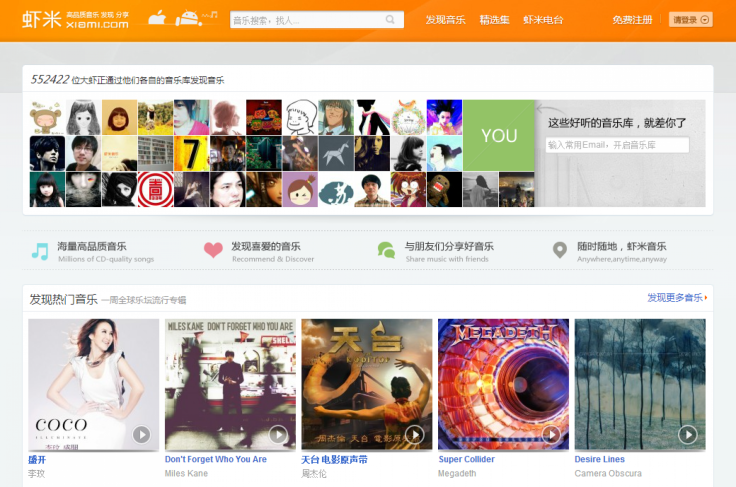Alibaba Buys Xiami, Major Music Streaming Site, In Next Step To Take Over China’s Music Industry

Alibaba has finalized a deal to acquire Xiami, a major music-streaming service, as the ecommerce giant positions itself to take over China’s online music industry.
Former Alibaba CEO Jack Ma, who stepped down last month, agreed last year to purchase the site, which -- with its download and streaming options and creamsicle color scheme -- resembles the popular MP3-streaming service, Soundcloud, Sina Tech reported. The company first announced the deal in January.
In April, Taobao, the Alibaba-owned e-retail behemoth, began rolling out functionality for Xiami, adding a “My Music” tab to users’ “My Taobao” pages.
The function, embedded on the lower right-hand side of the homepage, provides users with Xiami’s music-streaming services, allowing Taobao users to play music while they shop online.
Xiami’s founder, Wang Hao, a former programmer at Alibaba, said the company has looked to disrupt the already-ailing music industry since it was founded in 2007, about three years after music sales began declining in China.
“For us, the closer the music industry is to rock bottom, the less resistance Xiami gets to do its job,” he said, according to Sina Tech.
The company has followed a similar business model to its Western counterparts, such as the United States’ Pandora Internet Radio (NYSE:P), Sweden’s Spotify or France’s Deezer – all of which rely, in part, on advertising dollars for its free services.
Xiami, also a free service, will likely make much more money off ads as it gains access to Alibaba’s massive user base.
The acquisition is the latest move for the company often compared to the Seattle-based Amazon.com Inc. (Nasdaq:AMZN). Last week, it purchased Cainiao Internet Technology Ltd., a new joint venture formed by Alibaba in partnership with eight e-retailers and courier services. The company now seems poised to take over the courier market, making it a direct threat to the state-owned China Post and other smaller businesses. Alibaba has already invested 2.15 billion yuan ($350.6 million) in the company, making it the venture's largest investor, with 43 percent of Cainiao's shares.
Sophie Song contributed to this report.
© Copyright IBTimes 2024. All rights reserved.












